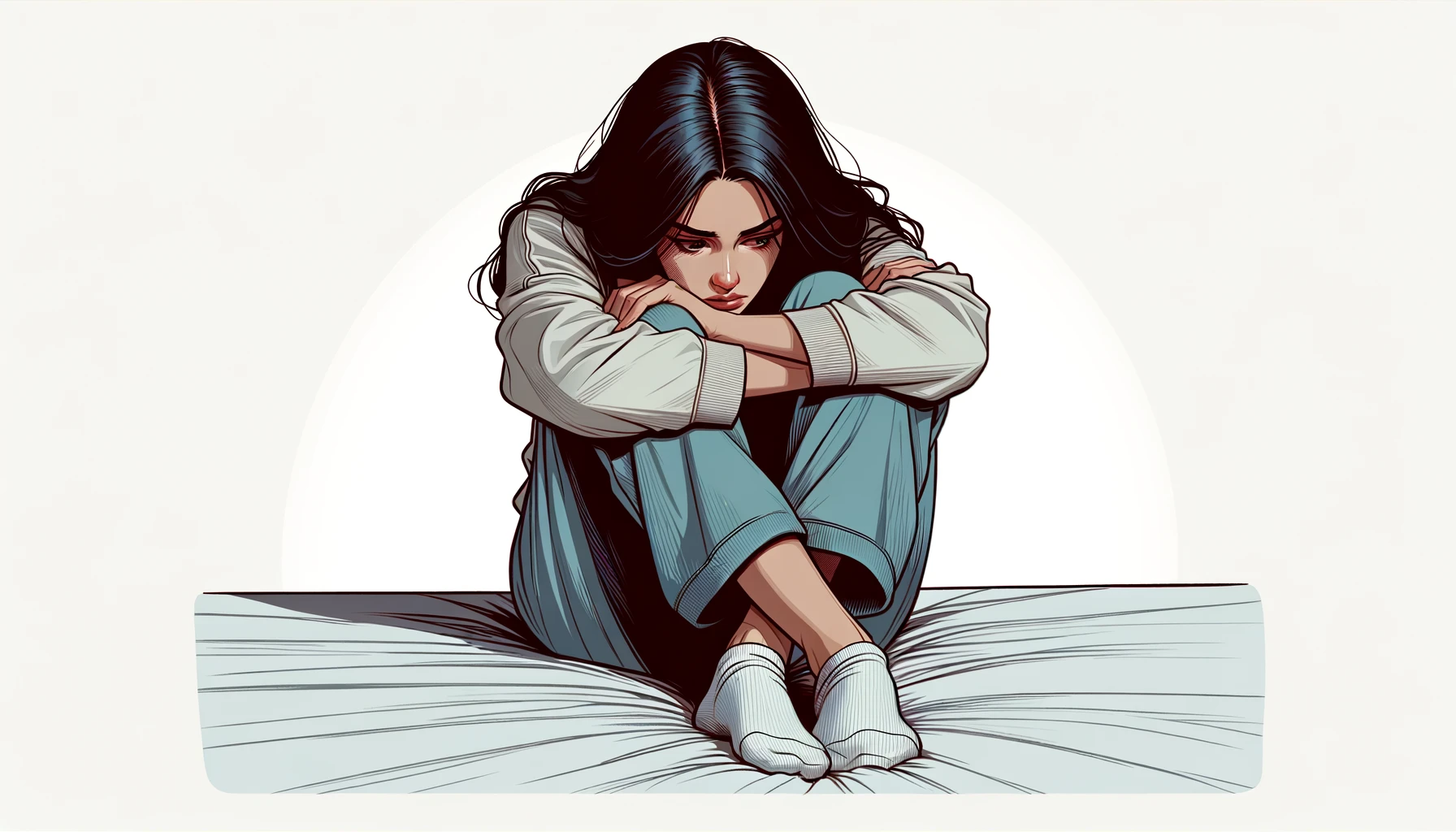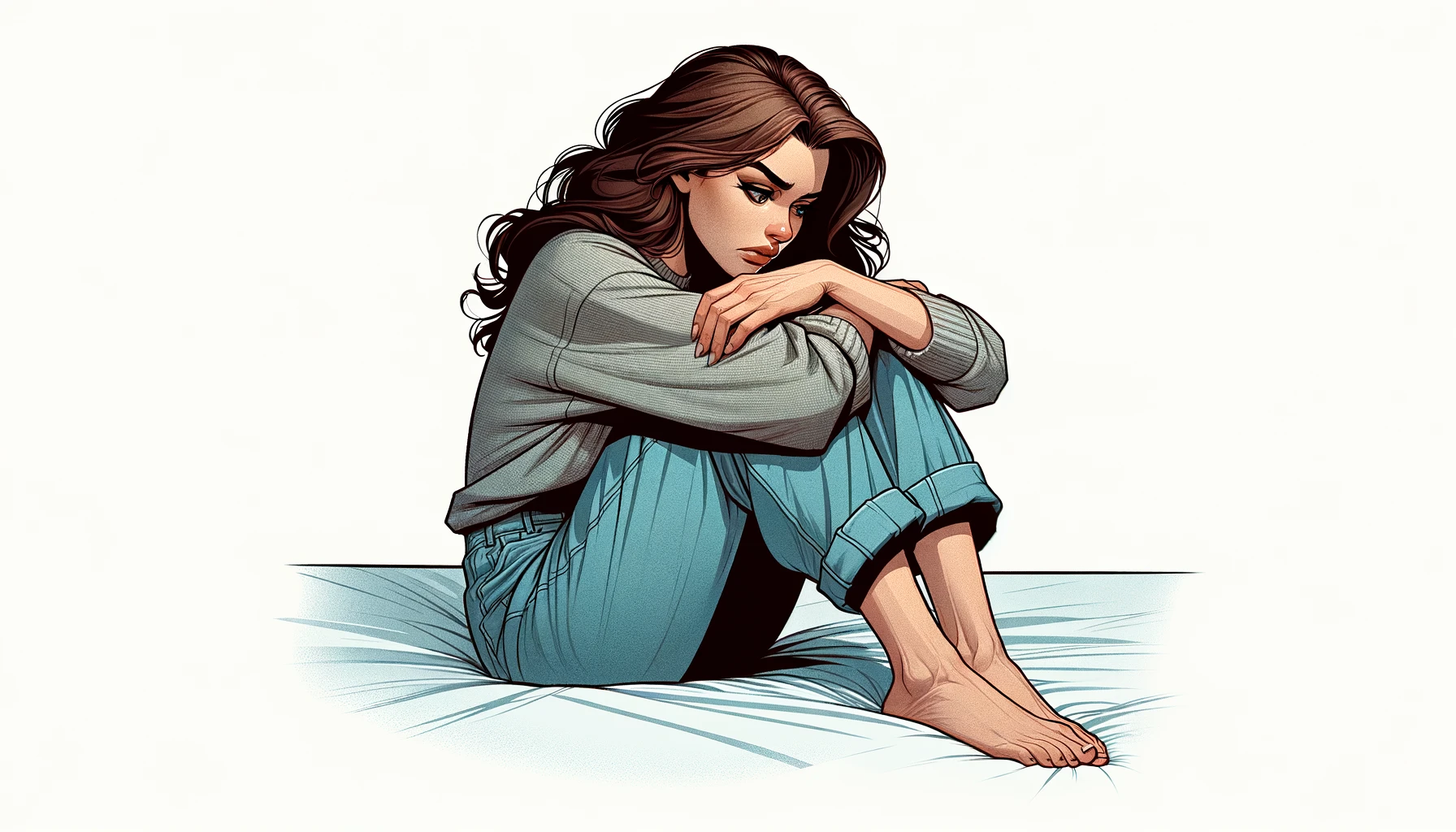Sharing is caring!
Breakups can be incredibly painful, and different people cope with heartache in various ways.
For some, the overwhelming emotions and hurt can lead them to isolate themselves from friends and loved ones, making it appear as though they’ve disappeared.
When someone disappears after being dumped, it means they’re taking a break from hanging out with mutual friends, staying off social media, or just being by themselves more.
In this article, we’ll dive deeper into why people might choose to disappear after a breakup and what really happens after. Does it make your ex miss you more? We’ll answer this as well.
Why People Disappear After Being Dumped

1. Need for Space and Time to Heal
When someone suddenly goes off the radar after a breakup, it’s often because they need some space and time to heal.
Breakups can feel like an emotional whirlwind, and being alone gives someone the quiet they need to start sorting through their feelings.
It’s not just about being away from their ex, but also about getting back in touch with who they are on their own.
Finding oneself again can be a journey. During a relationship, it’s easy to get tangled up in “we” and “us,” sometimes losing sight of “me.”
So, when the relationship ends, diving into solitude can be a way to rediscover personal interests, goals, and preferences.
It’s a process of relearning how to be happy and fulfilled without relying on someone else for those feelings.
Moreover, taking this time can help soften the sting of rejection. Let’s face it, getting dumped hurts.
By stepping away, individuals can shield their bruised egos and hearts from more pain. It’s a form of self-preservation, allowing wounds to heal without the constant reminder of what was lost.
In essence, disappearing acts are not just about escaping from the ex, but about reclaiming personal space for emotional recovery.
2. Avoiding Awkward Social Interactions
Imagine bumping into an ex right after the breakup; awkward, right?
To dodge such uncomfortable encounters, many choose to lay low for a while.
Social media, mutual friends, and shared hangout spots can turn into minefields of awkwardness.
Staying away from these social arenas helps avoid the stress of pretending to be okay when you’re not, or the pain of seeing your ex seemingly moving on easily.
This avoidance strategy also applies to mutual friends. Sometimes, choosing sides becomes an unintended consequence of breakups.
To steer clear of putting friends in the middle or facing questions they’re not ready to answer, disappearing can seem like the simpler option. It’s a way to avoid drama and allow some time for emotions to settle down before reengaging with shared social circles.
Additionally, steering clear of common spaces is a tactic to prevent rumors or gossip.
Breakups can unfortunately become fodder for the social grapevine, and staying out of the spotlight helps minimize this.
It’s a protective measure, ensuring that when they do decide to reenter their social world, they’re more in control of their narrative and, hopefully, facing a less curious audience.
[Also Read: Dismissive Avoidant Breakup Stages]
3. Fear of Emotional Vulnerability
Opening up to someone about your deepest feelings, only to have the relationship end, can make anyone wary of being vulnerable again.
After a breakup, the thought of exposing oneself emotionally, even to friends or family, can seem daunting.
Disappearing serves as a shield against further emotional exposure. It’s a way of keeping the raw, tender parts of oneself safe from potential judgment or pity.
This withdrawal is not just about avoiding sharing pain; it’s also about not wanting to deal with the emotions of others.
Sometimes, well-meaning friends and family express their anger, sadness, or disappointment regarding the breakup.
While they aim to be supportive, managing these reactions can feel overwhelming for someone already dealing with their turmoil.
There’s the aspect of self-reflection that requires solitude. Being vulnerable means acknowledging and confronting one’s part in the breakup, which can be a tough pill to swallow.
In solitude, individuals can face their flaws and mistakes without the added pressure of external opinions.
It’s a necessary step for personal growth, even if it means disappearing for a bit to get there.
4. To Gain a New Perspective on the Relationship

With distance and time, the clarity that was once obscured by emotions begins to surface.
People start to see the relationship and the breakup from a new perspective. This isn’t about assigning blame but about understanding the dynamics of the relationship more objectively.
It’s an opportunity to acknowledge both the good and the bad, the growth and the setbacks, and to learn from each aspect.
This change in perspective is crucial for moving on. It allows individuals to see that the end of the relationship isn’t a reflection of their worth but rather a chapter in their life that has come to a close.
They begin to recognize the lessons learned and how these lessons can be applied to future relationships and personal growth.
5. Feeling Embarrassed About Being Dumped
It’s not uncommon for someone to vanish from the social radar after a breakup due to feelings of embarrassment.
Being dumped can sometimes feel like wearing a big, neon sign that screams “Not wanted!”
Even though breakups are a part of life and nothing to be ashamed of, that knowledge doesn’t always ease the sting of rejection.
This embarrassment can make it hard to face friends, family, and especially acquaintances who might not know the whole story.
The fear of judgment plays a big role here. People worry about being seen as less desirable or questioning what they could have done wrong.
It’s a tough spot to be in, feeling like your personal life is up for public scrutiny.
By disappearing for a bit, individuals give themselves a buffer zone, a chance to rebuild their confidence away from the prying eyes and well-meant but sometimes awkward consolations of others.
7. To Protect One’s Emotional Energy
In the aftermath of being dumped, guarding one’s emotional energy becomes a top priority.
Breakups can drain you emotionally, leaving you feeling like you have little left to give to others, even those who want to support you.
By stepping away, individuals can focus on conserving and rebuilding their emotional reserves without the added stress of social interactions.
This self-imposed isolation can be a form of self-care, a way to protect oneself from situations that might trigger sadness, anger, or anxiety.
It’s recognizing that you’re in a vulnerable state and making the conscious decision to shield yourself from potential emotional harm.
Think of it as creating a safe space where you can heal at your own pace without external pressures.
Does Disappearing Make An Ex Miss You?

When you disappear after a breakup, it might make your ex notice your absence, especially if you were always around before.
This isn’t about playing games; it’s more about giving both of you space to understand your feelings better.
Not being in contact can sometimes remind your ex of the good times you shared, making them miss those moments and possibly you.
However, it’s important to remember that everyone reacts differently. While some people might start to miss you more when you’re not around, others might see it as a chance to move on.
The key is to focus on healing yourself instead of trying to influence how your ex feels.
Whether or not they miss you shouldn’t determine your worth or the steps you take towards moving on.
What Does Your Ex Think When You Disappear?
When you suddenly disappear from your ex’s life, it might leave them wondering what you’re up to.
They could be curious about how you’re handling the breakup, whether you’re moving on, or if you’re just as upset as they are.
This curiosity might make them reflect on the relationship and their feelings towards you.
At the same time, your ex might also respect your need for space and see it as a mature way to handle the situation.
They might understand that you’re focusing on yourself and healing, which can lead to them thinking about their growth and how they’re dealing with the breakup.
Remember, the goal of disappearing isn’t to play mind games but to give both of you the space you need to heal.
Can Disappearing Help You Heal From A Breakup?
Yes, taking a step back and disappearing for a while can help you heal from a breakup.
It gives you the time and space to focus on yourself without the distraction of your ex’s presence.
This can be a time to reflect on what you want, rediscover hobbies and interests you might have neglected, and strengthen your relationships with friends and family.
Moreover, being away from your ex helps you break the cycle of dependency and constant emotional turmoil.
It’s a chance to rebuild your self-esteem and independence.
Healing is about finding your footing again and understanding that you can be happy on your own.
Disappearing can be a crucial step in that journey, helping you to look inward and move forward.
Does Disappearing Affect How Quickly You Move On?
Disappearing after a breakup can speed up your moving-on process.
By removing yourself from the situation and cutting off communication, you’re less likely to dwell on what-ifs and replay old conversations.
It’s a way to clear your head and focus on the present and future, rather than being stuck in the past.
This time apart allows you to process your emotions more effectively, without the constant reminders of your ex. It’s about creating a healthy distance so you can assess what you want out of life and relationships.
Moving on isn’t just about getting over someone, but also about growing as a person and discovering what makes you happy.
Disappearing can serve as a reset button, giving you a clearer perspective and making it easier to embrace new opportunities.
Sharing is caring!
